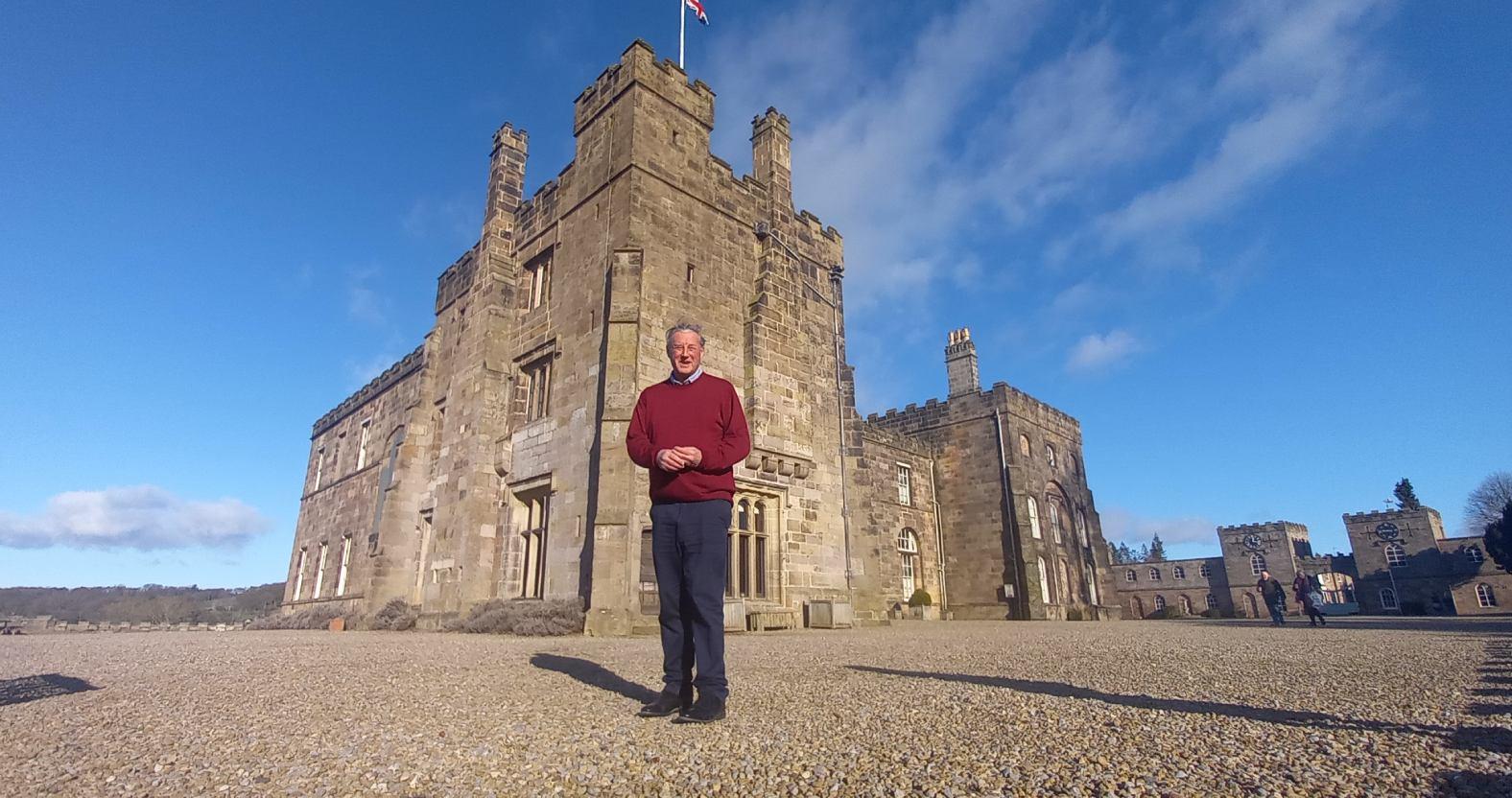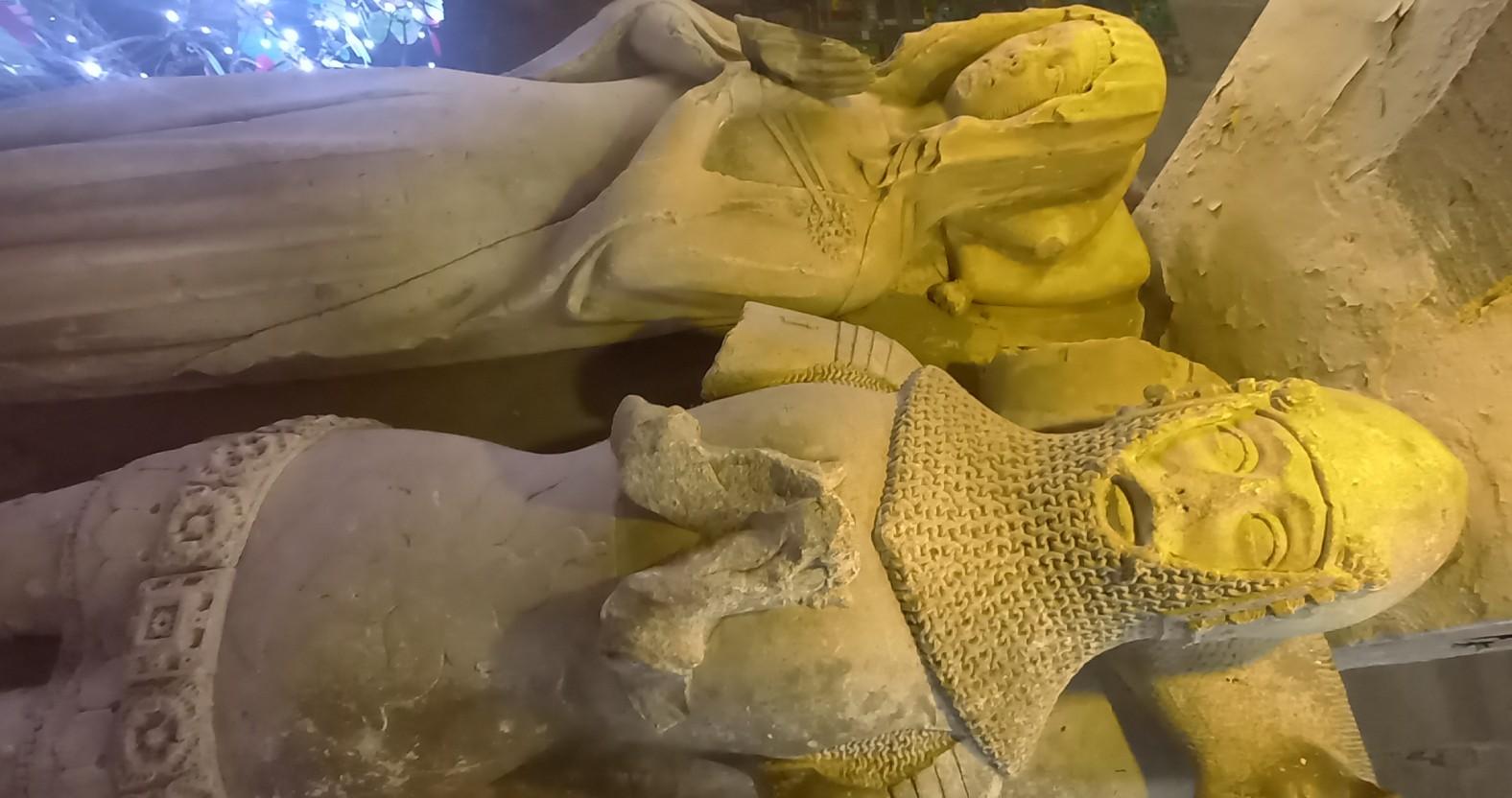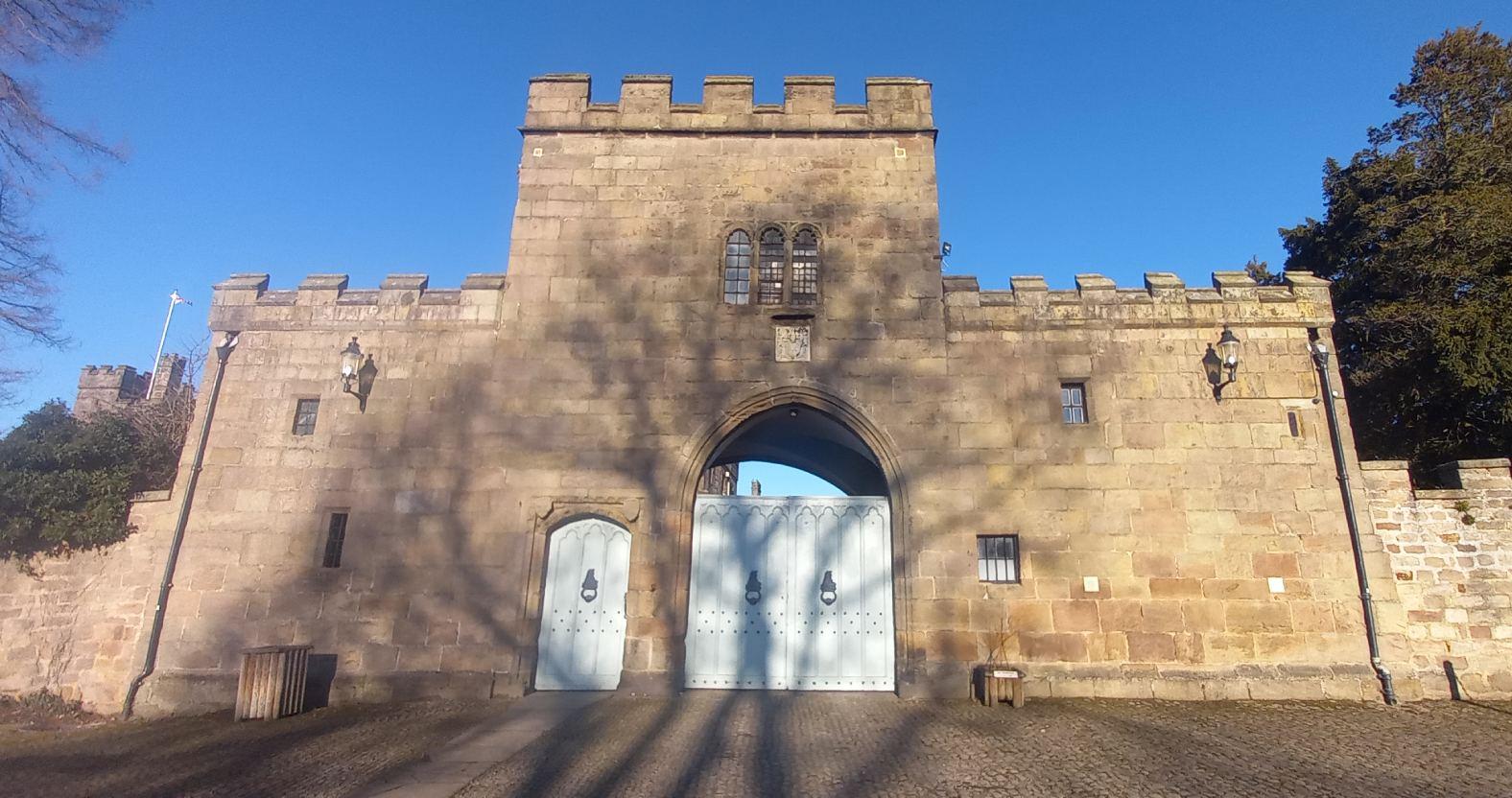Subscribe to trusted local news
In a time of both misinformation and too much information, quality journalism is more crucial than ever. By subscribing, you can help us get the story right.
- Subscription costs less than £1 a week with an annual plan.
Already a subscriber? Log in here.
01
Feb 2025
Sir Thomas Ingilby: 'There are times when I feel down about it'

This is the first part of a two-part interview with Sir Thomas Ingilby of Ripley Castle. In today’s article, he tells us when and why he and Lady Emma Ingilby decided to sell their ancestral home, how he feels about it, what their children think of it, and what the move will entail.
In part two, which will be published tomorrow, Sir Thomas tells us what he’ll miss most about the place, who he’d like to buy it – Donald Trump or Taylor Swift – and what he wants to do now.
Anyone who’s ever moved out of a much-loved family home will know what a monumental and heart-wrenching job it can be, and the longer you’ve been there, the worse it gets. So just how do you go about leaving a very large house that your family has occupied for 700 years? And how do you deal with the inevitable emotional fallout?
Sir Thomas and Lady Emma Ingilby announced back in June that they were to sell their ancestral seat, Ripley Castle, and the mere task of readying it for sale has been daunting. The castle didn’t have any title deeds – the Land Registry was only created relatively recently, in 1862.

As for actually packing up, it turns out that might not be such a mind-boggling a job after all. The Ingilbys have already moved into a house in the village, and all the archives – the letters, parchments, contracts etc – were donated to the Brotherton Library in Leeds a few years ago.
What’s left is a house full of exquisite furniture and artefacts, as well as the usual the usual odds and ends of daily life. The cellar, says Sir Thomas, is “almost empty”, but there’s still plenty left in the attic. Moving will involve "a small army of men and women and a lot of removal vans".
He told the Stray Ferret:
It’s full of old suitcases, my old cricket bag, bits of furniture, and paintings which have become totally unloved.
If ever you have your portrait painted, have it done by someone really good. Otherwise, you end up in the attic really quickly, never to be seen again!
Some of the items that are intrinsically linked to the castle, including the other, historical portrait paintings, will be offered for rent to the buyer to keep the collection together.
Sir Thomas said:
I hope [the portraits] will remain with the castle, because quite apart from anything else, history is much more interesting when the viewer can see the faces of the people who actually took part in that particular story.

Some of the arms and armour on display in the Knight's Chamber
And what a history. The family lived through the Black Death, which wiped out about 50% of the population in Yorkshire, and picked the losing side in successive bouts of national turmoil: Catholics during the Reformation and Royalists during the Civil War. And yet they clung on through successive scrapes. They are nothing if not survivors.
Much of this history is evidenced by artefacts and anecdotes for every part of Ripley Castle – the priest-hole in the knight’s chamber, the bullet-holes in the gatehouse wall – and Sir Thomas speaks of his ancestors with such familiarity that it sometimes sounds as if he knew them personally. It must be hard to face leaving. So why is he?
He said:
During lockdown, we closed completely, like everywhere else, and one evening we were sitting outside having a drink in the sun on the terrace overlooking the park, and there were no visitors or staff around for the first time ever in my life here.
It suddenly struck me: ‘God, this is a whole new experience!’. It just made me wonder: this is so beautiful – wouldn't it be nice to enjoy it a bit more often?

The medieval gatehouse, which still has bullet holes from the Civil War
Over the last few years, that feeling has solidified into a plan of action, resulting in the decision last May to sell up.
But does he ever feel the weight of responsibility for such a decision – that he might have somehow disappointed the ancestors? He told us:
When I inherited the estate, I had to sell over half of it to pay death duties. My mother was convinced the whole estate would have to be broken up and sold.
But I’ve kept it going for another 52 years and made a really good fist of it, so I think [my ancestors] would appreciate that I haven’t done a bad job. Certainly, compared with what some of them did. I mean, landing up on the wrong side of the Gunpowder Plot wasn’t a good continuity policy, was it?
That said, he does admit that it wasn’t an easy decision. He told us:
There are times when I do feel down about it – we both do – and that will continue for some time.
But the positives outweigh the negatives – it's the right decision at the right time, and I’m as convinced about that now as I was when I made the decision.
The couple are supported in their decision to sell by their five children, who all have their own careers. Sir Thomas said:
They are passionate about the castle. I never want it to be thought that they walked away, because this is very much their home. They’ve all loved living here, and they will always have very strong emotional ties to it.
But before we made the decision last year, we had a meeting with all the children, and they were 100% in support of the decision that we’ve made.

The whole Ripley Castle estate is on the market for £21 million with estate agent Carter Jonas. Photo: Ripley Castle.
Sir Thomas will hand over the estate, content in the knowledge that it is in far better shape than it was when he took the reins as an 18-year-old.
Back then, the east wing was falling down, the castle roof leaked, and the garden pavilions were so run down they ended up on English Heritage’s ‘at risk’ register for 27 years.
These three jobs alone were put right at a combined cost of around £3 million, and Sir Thomas reckons there’s very little for the next owner – whoever that might be – to do.
He said:
The estate is in good order. We’ve covered certainly 90% of the major problems here. Whoever comes in has got time to tackle the others, and it actually needs very little money to do it.
If I ever discovered the fountain of youth and could reappear as a 25-year-old, I would very happily do it all again. But I don’t want to be carried out feet first. When you’re 70, I think it’s time to let go, and let someone else do it.
0